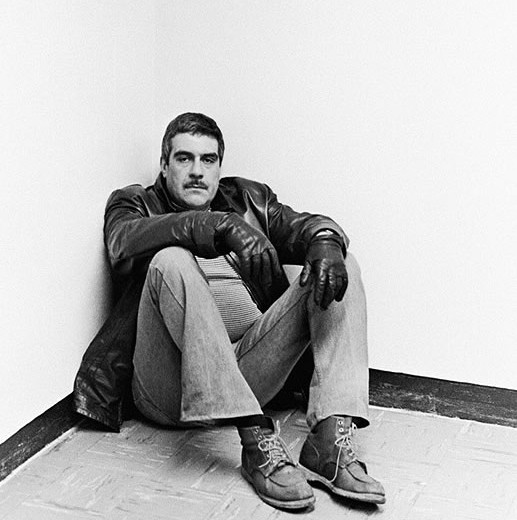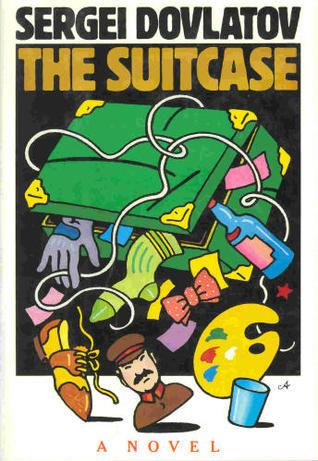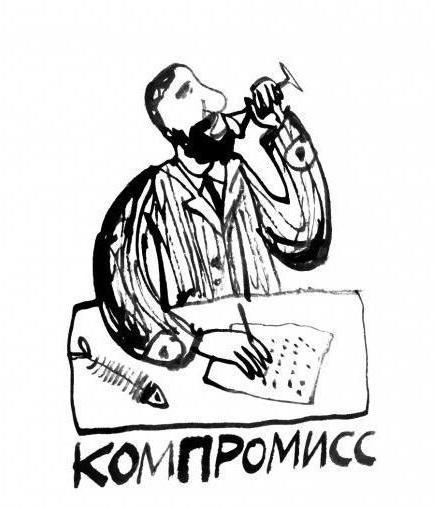The 3rd of September marks the 76th birthday of Sergei Dovlatov, a writer who rose to fame in the West during the 1970s but who, very sadly, died far too young at the age of 49. Read this post to find out more about Dovlatov, including information about a forthcoming film about the author!
The 3rd of September marks the 76th birthday of Sergei Dovlatov, a writer who rose to fame in the West during the 1970s but who, very sadly, died far too young at the age of 49. Born on September 3, 1941, in the Eastern Russian city of Ufa, Dovlatov started his life as a war evacuee, before moving back to Leningrad (now called St. Petersburg) in 1944 with his parents, who both worked in the theatre.

Dovlatov spent most of his life in Leningrad. There, he entered the Faculty of Philology at Leningrad State University (but dropped out in his second year due to bad performance); it was during his studies at this faculty that he made friends with several writers, including Evgenii Rein and Joseph Brodsky.
After a brief period of serving in the army (1962-65), Dovlatov began working for various Leningrad publications as a journalist, while also writing short stories in his free time. Then, between 1972 and 1975, Dovlatov lived in Tallinn (Estonia), working there as a journalist for the newspapers ‘Soviet Estonia’ («Советская Эстония») and ‘Tallinn in the Evenings’ («Вечерний Таллин»).
Dovlatov made several attempts to publish his prose in the USSR, but all of these attempts proved fruitless: the KGB prohibited the publication of his works due to it failing to conform to the official party ideology about art (his opponents called his work ‘ideologically hostile’). He began to publish his works independently (called ‘samizdat’); then, due to some of his works being published in western journals in 1976, he was expelled from the Union of Soviet Writers.
It was perhaps because of these difficulties surrounding publication and censorship that Dovlatov decided, in 1978, to emigrate to the USA. There success followed him wherever he went: he became the co-editor of the liberal Russian emigre newspaper ‘The New American’ (‘Новый американец’), he published a multitude of novels, and work of his was even published in the highly-prestigious magazine ‘The New Yorker’ (a rare occurrence for any writer). His most well-known works include The Zone (Зона: Записки надзирателя) (1982), Pushkin Hills (Заповедник) (1983), and The Suitcase (Чемодан) (1986). His works were a complete hit in the West, but, sadly, were not published in his homeland until after his death (when, after the collapse of the Soviet Union, people were able to publish without conforming to censorship). Nonetheless, his works were still read – in secret – by people from the USSR: people read his publications through samizdat and by listening to readings of his works on the radio channel ‘Radio Liberty’.

Many of his books were inspired by his own experiences. For example, his book Compromise (Компромисс) (1981) follows the life of a Russian journalist working in Estonia, which relates to Dovlatov’s time working in Estonia as a journalist. The book consists of twelve short stories, each beginning with a newspaper cutting and then followed by the ‘story behind the story’. The stories present the journalistic world as a world of lies, fabrication, and moral compromise.
»Ten years of lies and dissembling. It’s a hard road from the reported facts to the truth.’
“Десять лет вранья и притворства…[…]…Трудна дорога от правды к истине.”
— From the beginning of Compromise.

Illustration for Compromise
So, what exactly made Dovlatov so popular? Perhaps, it was the ironic tone and humour that often underpinned his work. Or, perhaps, it was his ability to create characters who possessed a true sense of humanity. Perhaps it was because the reader could find parts of himself in Dovlatov’s descriptions of his characters.
Joseph Brodsky, explaining why Dovlatov was so popular all over the world, said:
“His success can be attributed – most of all – to his tone, a tone that is recognisable to any person living in a democratic society: a tone that comes from an individual who won’t be cast in the role of a victim, who is not obsessed with what makes him different.»
«Решающую роль [в его успехе], однако, сыграла, конечно, узнаваемая любым членом демократического общества тональность — отдельного человека, не позволяющего навязать себе статус жертвы, свободного от комплекса исключительности.»
— Joseph Brodsky, 1992

Sergei Dovlatov with Joseph Brodsky (right) and David Rieff (center), New York City, 1984
Whatever the exact reasons for his success, one cannot deny that Dovlatov was a highly popular writer. In fact, even now, two decades after his death, he is still in the forefront of people’s minds, so much so that a film about his life is currently in the process of being released. Dovlatov, produced by Aleksei German Jr., is said to be scheduled for release in 2018. The film is set in 1971 Leningrad and depicts four days of Sergei Dovlatov’s life, with characters such as Joseph Brodsky weaving in and out of his story. In an interview with the Rossiyskaya Gazeta Daily, the director said:
«I am interested in Dovlatov himself – not a fictional persona but the writer, who actually existed. And, of course, I am interested in the Leningrad of the early 1970s. There is no shortage of films about Moscow of that time; there have been quite a lot of films about sports, loads of war films. But we have almost no films about the people who created outstanding Russian culture. I think it’s a huge omission. Leningrad was the center of the cultural life of the country at the time.”
Director Aleksei German Jr.
So, if you’re interested in finding out more about this highly-esteemed writer, keep an eye out for this upcoming film!
In the meantime, why not read one of Dovlatov’s books, to see for yourself why the writer was so popular?